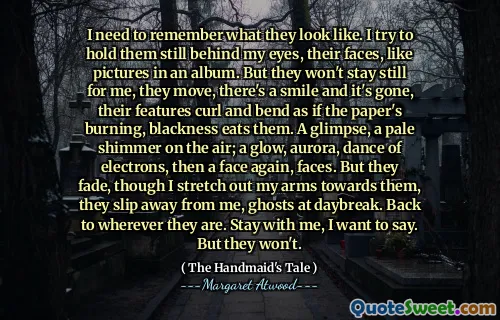Can I be blamed for wanting a real body, to put my arms around? Without it I too am disembodied. I can listen to my own heartbeat against the bedsprings, I can stroke myself, under the dry white sheets, in the dark, but I too am dry and white, hard, granular; it's like running my hand over a plateful of dried rice; it's like snow. There's something dead about it, something deserted. I am like a room where things once happened and now nothing does, except the pollen of the weeds that grow up outside the window, blowing in as dust across the floor.
The quote reflects a deep longing for human connection and the profound sense of isolation experienced by the speaker. They express a desire for a tangible, living body to embrace, contrasting this yearning with their own disembodied existence. The imagery of dry, lifeless sheets evokes a sense of desolation, highlighting the emotional and physical emptiness that accompanies solitude. This comparison to inanimate objects like dried rice and snow emphasizes the stark absence of warmth and vitality in their current state.
Moreover, the speaker likens themselves to an abandoned room, once filled with life and activity but now reduced to emptiness and neglect. This metaphor conveys a loss of purpose and the erosion of joyous experiences, replaced by the invasive 'dust' of uninvited memories and neglected feelings. The mention of weeds and pollen suggests a natural decay, hinting at the passage of time and a longing for renewal or companionship in a world that feels increasingly desolate.






